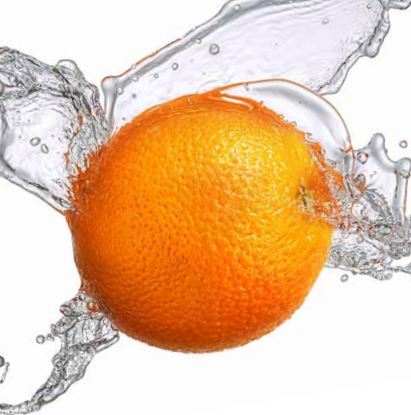Summer Safety
Beat the summer heat with hydration and sun protection.
 Water is essential to the human body. The water we consume serves to optimize our blood pressure, regulate body temperature, lubricate joints, move waste out of our bodies and aid our digestive systems. “Staying hydrated is very important, especially during the summer months,” says Dr. Raghav Nehru, a board-certified internal medicine specialist at Crescent City Physicians. “We are 60 percent water by weight, therefore, proper hydration is essential for our overall health,” he says. “Water ensures that we maintain proper blood circulation and body temperature.”
Water is essential to the human body. The water we consume serves to optimize our blood pressure, regulate body temperature, lubricate joints, move waste out of our bodies and aid our digestive systems. “Staying hydrated is very important, especially during the summer months,” says Dr. Raghav Nehru, a board-certified internal medicine specialist at Crescent City Physicians. “We are 60 percent water by weight, therefore, proper hydration is essential for our overall health,” he says. “Water ensures that we maintain proper blood circulation and body temperature.”
Water carries heat away from our internal organs before the heat causes serious damage. Heat radiates through the skin and produces sweat. As our sweat evaporates, the body cools itself to stay at a safe temperature. In extreme heat, high humidity or vigorous activity in the hot sun, this cooling system may fail. It is this failure that causes the body heat to build up to dangerous levels, leading to heat stroke or even death.
“With increased summer temperatures and outdoor activities comes increased water loss — through sweating and evaporation — as your body struggles to stay cool,” Dr. Nehru says. “Signs that you may be dehydrated can include loss of appetite, dry mouth, light-headedness and dizziness.”
Daily water intake must be balanced with losses to maintain total body water. It’s important to note that individual fluid needs will differ depending on your sweat rate, the environmental temperature, your clothing, humidity and other factors.
“Water is the best hydrating agent we have,” he says. “I remind my patients that when they drink plenty of water and eat a diet rich in hydrating whole fruits and vegetables, their mind and bodies will be grateful.”
Dr. Nehru offers these five tips for staying hydrated:
1. Stick to Pure Water
“Skip the unnecessary sugars, additives, and caffeine found in other drinks,” he says. “Water is always the better choice to hydrate when you are engaging in your daily activities. Although sport drinks can help to replenish your body’s fluids and provide electrolytes to boost your energy level, some also have a high salt or sugar content.”
2. Drink Enough Water
“The amount will vary depending on how much you weigh, your age and your activity,” Dr. Nehru says. “As a rule, you should drink 64 ounces per day. Obviously, if you are sweating more, you need to drink more.”
3. Eat Fruit and Vegetables
“Only 70 to 80 percent of your daily hydration comes from water; 20 to 30 percent comes from food,” Dr. Nehru says. “These fruits and vegetables offer the maximum water content: cucumbers (97 percent); celery (96 percent); tomatoes and radishes (95 percent); red, yellow and green bell peppers (93 percent); cauliflower and watermelon (92 percent); spinach, strawberries and broccoli (91 percent); and grapefruit (90 percent).”
4. Make a Hydrating Schedule
“Drink a predetermined amount of water throughout the day (such as at meals; and before, during and after exercise),” Dr. Nehru says.
5. Add Flavor
“You can add limes, lemons, oranges, berries, or cucumbers, to add taste to your water without any added artificial sweeteners or preservatives,” Dr. Nehru says. “Before you drink store-bought flavored water, always check the label for sugar content.”
“If you’re an elderly adult or take care of someone who is older, it is especially important to pay more attention to hydration,” Dr. Nehru says. “Aging impairs the body’s natural thirst mechanisms, which makes it easier to become dehydrated. People with heart-related conditions or diabetes are also at a greater risk for heat-related illnesses and should be reminded to drink water, even if they spend all day indoors.”
Dr. Nehru cautions that those without air conditioning may become accustomed to the heat. “If all you have is a fan to keep you cool, then take a washcloth and cool yourself with lukewarm water — and that will help cool off your body,” he says.
PRACTICE SUN SAFETY
Dr. Nehru advises to avoid exposure to ultraviolet (UV) rays, you should stay out of the sun between 10 a.m. and 4 p.m. “It is recommended that you use a sunscreen lotion of SPF 30, which filters out 97 percent of UV rays,” he says. “The higher the SPF, the better, but there isn’t a large advantage in terms of blocking harmful UV rays above SPF 30. You should apply sunscreen 30 minutes before [exposure], and reapply it every two hours and after swimming.”
When you are out in the sun, you can also wear clothing with UV protection. Wearing a hat with at least a two- to three-inch brim will help protect your ears, eyes, forehead, nose and scalp. “Finally, be your own doctor and self-examine your skin every six months,” Dr. Nehru advises. “You know your body more than anyone else. If you notice changes to any of your moles or new growths on your body, make sure you bring it to your doctor’s attention.”
After earning his medical degree from Ross University in Dominica, Dr. Nehru completed his residency at Wayne State University in Detroit and moved to New Orleans. Referring to the patient/physician relationship as the foundation of medical care, Dr. Nehru says he enjoys empowering his patients to live a healthier lifestyle.
